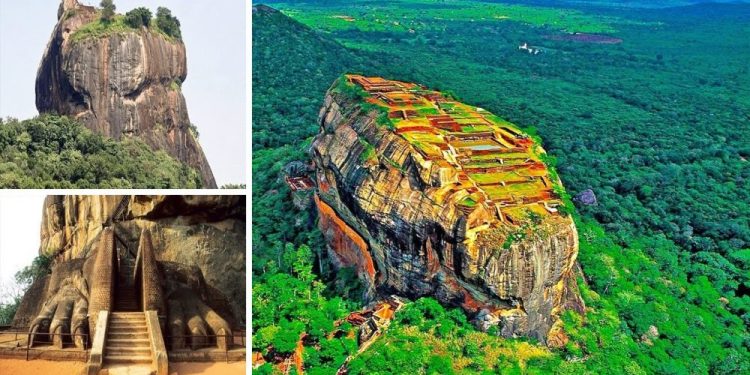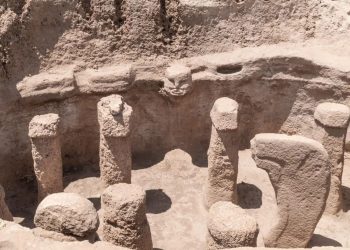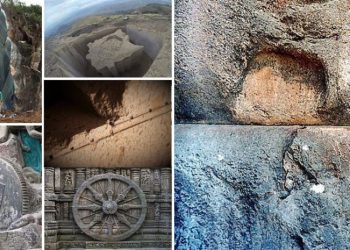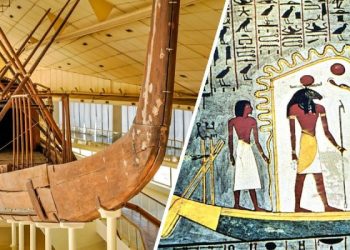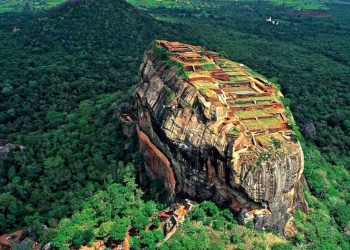Rising abruptly from the plains of central Sri Lanka, the Sigiriya rock fortress is one of the most extraordinary places ever shaped by human hands. Towering 200 meters above the surrounding jungle, this ancient stronghold blends raw geology, artistic mastery, and forgotten legend into one monumental enigma.
It’s not just a rock, and it’s not just a ruin. Sigiriya is the fossilized memory of a kingdom that vanished—and a glimpse into a time when architecture wasn’t just functional, but cosmic.
A king’s sanctuary in the sky
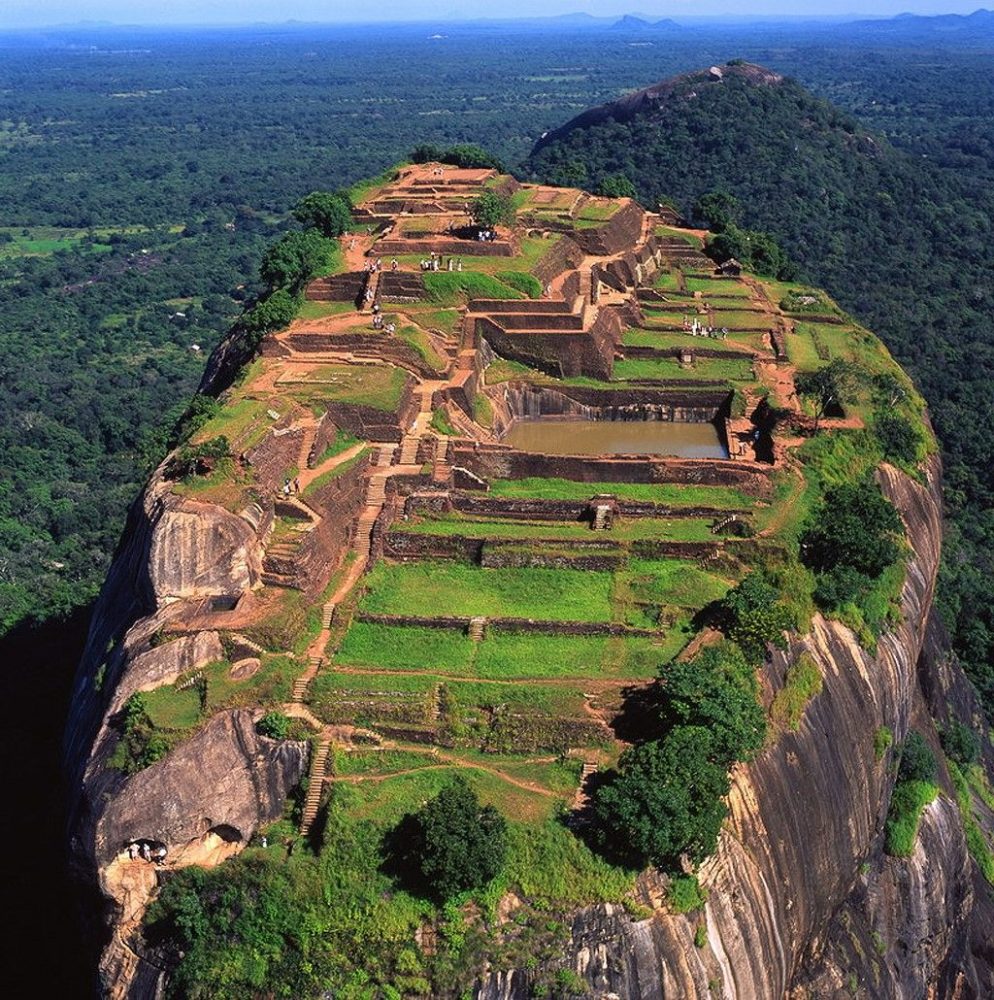
Sigiriya sits atop the solidified core of an extinct volcano—a magma plug left behind after the mountain’s softer layers eroded away over millions of years. When King Kasyapa came to power in 477 CE, he chose this natural stone tower as the centerpiece of his capital. It was the perfect place to escape enemies, command the land, and perhaps, touch the heavens.
He didn’t just build a palace. He built an entire city into the rock’s base, flanks, and summit: terraced gardens, defensive walls, elevated chambers, pools, and pathways that spiral up toward the sky.
According to the ancient Palm Leaf Book (Puskola Potha), the fortress was designed by Maya Danava—an architect of divine lineage said to have mastered cosmic proportions. Whether myth or memory, the design of Sigiriya seems far too sophisticated for its time.
And at its midpoint, carved directly into the rock face, are the lion’s paws—colossal stone feet that once formed the entrance to a gigantic lion-shaped gatehouse. They’re all that remains of the beast that gave the fortress its ancient name: Sīhāgiri, or “Lion Rock.”
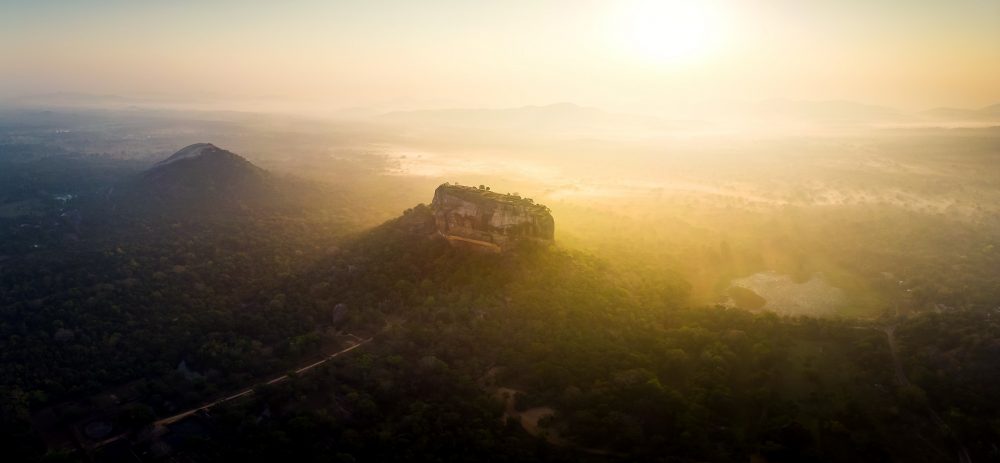
More than defense—this was vision
Sigiriya wasn’t just a stronghold. It was an entire world—planned with an understanding of nature, hydraulics, symmetry, and symbolism that still confounds experts today.
At the base, visitors encounter gardens unlike any other in antiquity: cascading terraces, man-made pools, fountains powered by underground pressure, and stone pathways framed by enormous boulders. Engineers still study its water systems, some of which are functional over 1,500 years later.
Halfway up the rock is the famous Mirror Wall, originally polished to a high gleam so the king could see his own reflection as he walked past. Over time, visitors etched poems, names, and thoughts into its plaster—some of them over 1,200 years old. These inscriptions, now carefully preserved, are some of the oldest examples of Sinhala literature.
And then there are the frescoes: painted high on the sheltered rock face, the Sigiriya maidens—bare-chested celestial figures with elaborate jewelry—float against a background of cloud and sky. Once numbering in the hundreds, only a few survive today. Their color, detail, and placement remain unmatched.
A sacred site long before the fortress
Sigiriya’s story didn’t begin with Kasyapa. Archaeologists have found evidence of human activity around the rock dating back more than 5,000 years. Buddhist monks occupied nearby caves as early as the 3rd century BCE, and some believe the site held spiritual or ritual significance long before it became a royal retreat.
After Kasyapa’s fall in 495 CE, the site was abandoned as a palace and later repurposed as a monastery for several centuries. Eventually, it was swallowed by jungle and nearly forgotten—until it was rediscovered by British surveyors in the 19th century.
Today, it’s a UNESCO World Heritage Site and one of the most visited historical locations in all of South Asia.
What Sigiriya won’t give up
The Sigiriya rock fortress is a palace, a stronghold, a city carved in stone—and maybe more than that. For all its engineering brilliance and artistic beauty, no one can say for sure what it truly was.
Why did King Kasyapa choose to build his capital on top of a rock in the middle of the jungle? Was it purely strategic, or was he trying to create something spiritual? Some say the site was meant to mirror Mount Meru, the cosmic mountain of Hindu and Buddhist mythology. Others wonder what became of the giant lion’s head that once towered over the entrance.
The truth is, we don’t really know. What’s clear is that Sigiriya wasn’t just about defense or escape. It was about making a mark—on the land, on the people, and maybe even on the gods. Whoever designed it saw beyond walls and gates. They built something that still speaks—just not in a language we fully understand. And maybe that’s the point. Not everything was meant to be explained.



